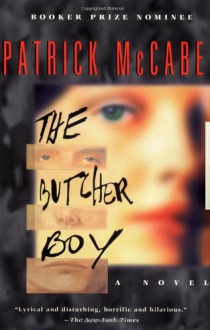Francie Brady is a disaffected, working-class, Roman Catholic teenager living in Northern Ireland. His alcoholic father works in the local slaughterhouse and his mother, despite being a whir of household efficiency, is suicidal. The latest phase of the "troubles" in Ireland have not yet formally...
show more
Francie Brady is a disaffected, working-class, Roman Catholic teenager living in Northern Ireland. His alcoholic father works in the local slaughterhouse and his mother, despite being a whir of household efficiency, is suicidal. The latest phase of the "troubles" in Ireland have not yet formally begun--it is the early '60s--but Francie is nonetheless caught in a cycle of pride, envy and poverty aggravated by the ancient conflict between Protestants and Catholics. The book opens with Francie remembering: "When I was a young lad twenty or thirty or forty years ago I lived in a small town where they were after me on account of what I done on Mrs Nugent." By its end, young Francie has dispatched Mrs Nugent and earned his eponymous nickname. The Nugents, a prosperous Protestant family, have it all, in Francie's eyes: their son Philip goes to private school and takes music lessons; their home is carpeted and the telly works. Francie begins by playing pranks on the family--swindling Philip out of his comic books, defecating in their house when they are away. But when he bludgeons Philip's brother in a fight, Francie loses his closest friend, who then befriends the Nugent family. Then the violence escalates. Deservedly, Butcher Boy won the 1992 Irish Times -Aer Lingus Award and was shortlisted for Britain's 1992 Booker Prize. McCabe's Francie speaks in a rich vernacular spirited by the brassy and endearing rhythms of perpetual delinquency; even in his gradual unhinging, Francie remains a winning raconteur. By looking so deeply into Francie's soul, McCabe ( Music on Clinton Street ) subtly sugggests a common source for political and personal violence--lack of love and hope. Major ad/promo; ABA appearance.
show less

